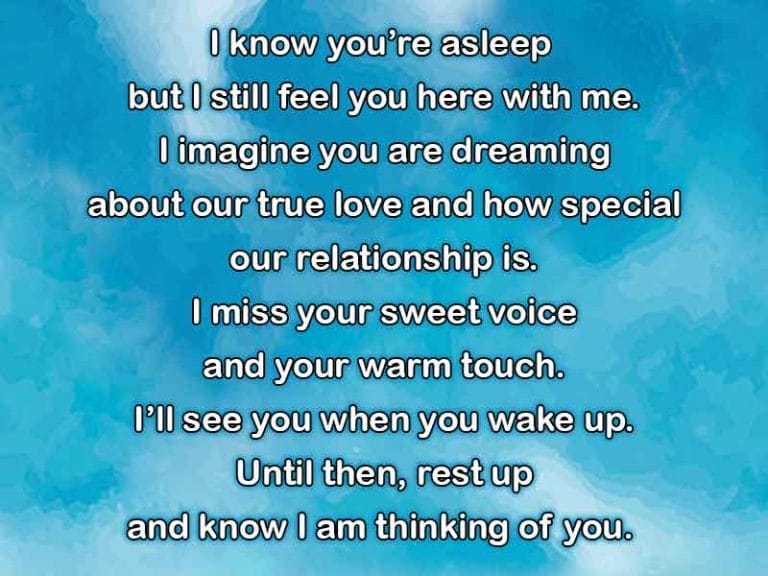I Know You're Asleep But: The Ultimate Guide To Understanding Sleep Talk And Its Mysteries
Let's talk about something that happens in the dead of night when you're not even aware of it. Sleep talking, or "i know you're asleep but," is a phenomenon that has intrigued scientists, psychologists, and plain ol' curious folks like you and me. Imagine this: you're lying there, all cozy in bed, and suddenly your partner blurts out something that sounds like a mix between a dream and a random grocery list. What gives? We're diving deep into the world of sleep talking, so buckle up.
Now, you might be wondering why this topic matters. Well, it's more than just a quirky bedtime story. Sleep talking can reveal insights into our subconscious mind, emotional states, and even health issues. And hey, who doesn't want to know what their brain is up to when they're supposed to be off-duty? We'll break it down for you, step by step, so you're not left in the dark (pun intended).
Before we dive headfirst into the nitty-gritty, let me just say this: sleep talking is surprisingly common. Like, way more common than you'd think. Studies show that up to 68% of people have experienced some form of sleep talking at some point in their lives. So if you've ever caught yourself mid-monologue in the middle of the night, you're definitely not alone. Let's get into it, shall we?
Read also:Big Ass Stadium Tour Setlist Your Ultimate Guide To The Rocking Experience
Here's a quick rundown of what we'll cover:
- What is Sleep Talking?
- Causes of Sleep Talking
- Types of Sleep Talking
- Biography of Sleep Talking
- Diagnosing Sleep Talking
- Managing Sleep Talking
- Impact on Relationships
- Sleep Talking and Dreams
- Famous Sleep Talkers
- Conclusion
What is Sleep Talking?
Alright, let's start with the basics. Sleep talking, formally known as somniloquy, is a parasomnia—a type of sleep disorder that involves abnormal behaviors during sleep. It's like your brain deciding to have a little chat while the rest of you is out cold. And no, it's not just mumbling random words. Sometimes, it can be full-blown conversations that make absolutely zero sense.
Here's the kicker: sleep talking isn't necessarily a bad thing. Most of the time, it's harmless. But if it happens frequently or is accompanied by other sleep disorders, it might be worth looking into. So, what exactly causes this midnight chatter? Let's find out.
Causes of Sleep Talking
There's no single cause for sleep talking, but researchers have identified a few common culprits. Stress, anxiety, and fatigue are big players in the sleep talking game. Think about it: when you're stressed, your brain is on overdrive even when you're trying to rest. It's like your mind can't shut off, so it keeps talking—even when you're asleep.
Other factors include sleep deprivation, alcohol consumption, and certain medications. And let's not forget genetics. If your parents were known to have a few late-night chats with themselves, there's a good chance you inherited that trait. It's like a family heirloom, but instead of a fancy vase, it's a penchant for nocturnal monologues.
Types of Sleep Talking
Not all sleep talking is created equal. Some people whisper softly, while others shout loud enough to wake the neighbors. There are generally two types of sleep talking: light and heavy. Light sleep talking is usually quiet and infrequent, while heavy sleep talking can be loud, frequent, and even disruptive.
Read also:Kristin Clark Komo Husband The Inside Story You Didnt Know
And then there's the content of what's being said. Sometimes, it's just random gibberish. Other times, it's a mix of real-life events, dreams, and pure imagination. It's like your brain is on shuffle mode, pulling up random memories and thoughts without any rhyme or reason.
Biography of Sleep Talking
Now, let's take a look at the "biography" of sleep talking. Here's a quick overview of what we know so far:
| Category | Details |
|---|---|
| Name | Somniloquy |
| Common Name | Sleep Talking |
| Prevalence | Up to 68% of people |
| Age of Onset | Most common in childhood |
| Duration | Can last from a few seconds to several minutes |
Diagnosing Sleep Talking
So, how do you know if you're a sleep talker? Well, unless someone tells you, you might never find out. That's the tricky part about sleep talking—it happens when you're, well, asleep. But if you suspect you might be a midnight chatterbox, there are a few signs to look for.
First, pay attention to any reports from your sleep partner. Are they complaining about your late-night conversations? Do they mention anything unusual about your sleep patterns? If so, it might be worth keeping a sleep diary to track any patterns or triggers. And hey, if you're really curious, you could always invest in a sleep tracker or consult a sleep specialist.
Managing Sleep Talking
Now, let's talk about managing sleep talking. While there's no cure, there are definitely ways to minimize its occurrence. The first step is to address any underlying issues, like stress or sleep deprivation. Practice good sleep hygiene by sticking to a regular sleep schedule, creating a relaxing bedtime routine, and avoiding stimulants like caffeine and alcohol before bed.
And don't forget about creating a sleep-friendly environment. Make sure your bedroom is cool, dark, and quiet. Invest in a comfortable mattress and pillows. And if all else fails, consider using white noise or earplugs to drown out any unwanted chatter.
Impact on Relationships
Let's face it: sleep talking can have an impact on relationships. Imagine trying to get a good night's sleep only to be woken up by your partner's random musings. It can be frustrating, to say the least. But with a little communication and understanding, most couples can work through it.
One solution is to have an open conversation about it. Let your partner know how it affects you and work together to find a solution. Maybe it's as simple as using earplugs or moving to different sides of the bed. Whatever works for you, just remember that communication is key.
Sleep Talking and Dreams
Now, let's talk about the connection between sleep talking and dreams. While not all sleep talking is related to dreams, there is definitely a link. Some researchers believe that sleep talking is a way for our brains to process and express the content of our dreams. It's like a sneak peek into our subconscious mind.
And here's something interesting: sleep talking can sometimes reveal things we didn't even know about ourselves. Maybe you're working through some unresolved issues or processing a recent event. Whatever it is, your brain is trying to make sense of it all, even if it's in the most random way possible.
Famous Sleep Talkers
Did you know that some famous people are known for their sleep talking? Yep, even celebrities aren't immune to this quirky habit. Take, for example, the legendary singer-songwriter, Barry Manilow. He's been known to belt out a tune or two in his sleep. And who could forget the late-night musings of actress Goldie Hawn? It just goes to show that sleep talking doesn't discriminate.
But here's the thing: sleep talking isn't just for the famous. It's a universal experience that can happen to anyone, anywhere. So the next time you catch yourself mid-monologue in the middle of the night, just remember—you're in good company.
Conclusion
Alright, let's wrap this up. Sleep talking, or "i know you're asleep but," is a fascinating phenomenon that has intrigued scientists and curious minds alike. While it's mostly harmless, it can sometimes be a sign of underlying issues that need attention. By understanding the causes, types, and management strategies, you can take control of your sleep talking and ensure a peaceful night's rest for you and your partner.
So, what's the takeaway? Sleep talking is a natural part of life, and there's no need to stress about it. Just remember to practice good sleep hygiene, communicate with your partner, and seek professional help if needed. And hey, who knows? You might just discover something interesting about yourself along the way.
Now, it's your turn. Do you have any sleep talking stories to share? Or maybe you've found a unique way to manage it. Let us know in the comments below, and don't forget to share this article with your friends and family. After all, sleep talking is something we can all relate to.
Article Recommendations


